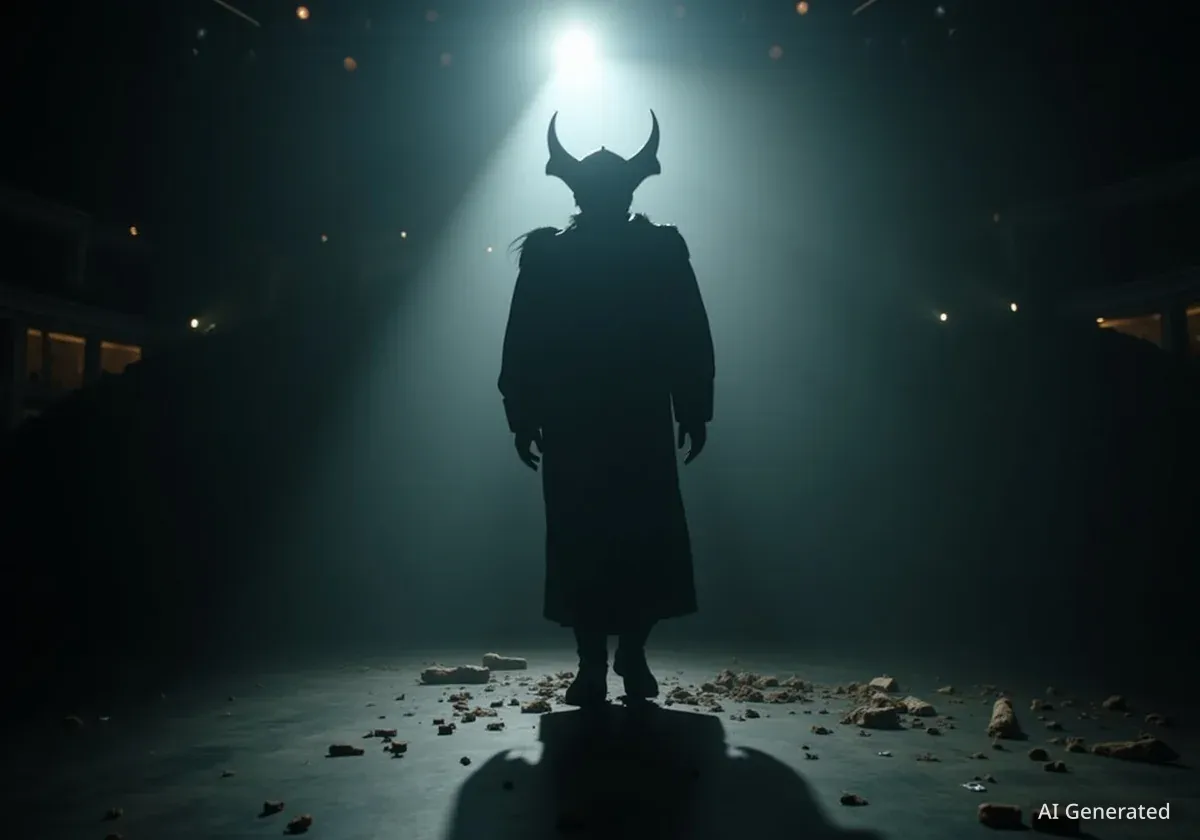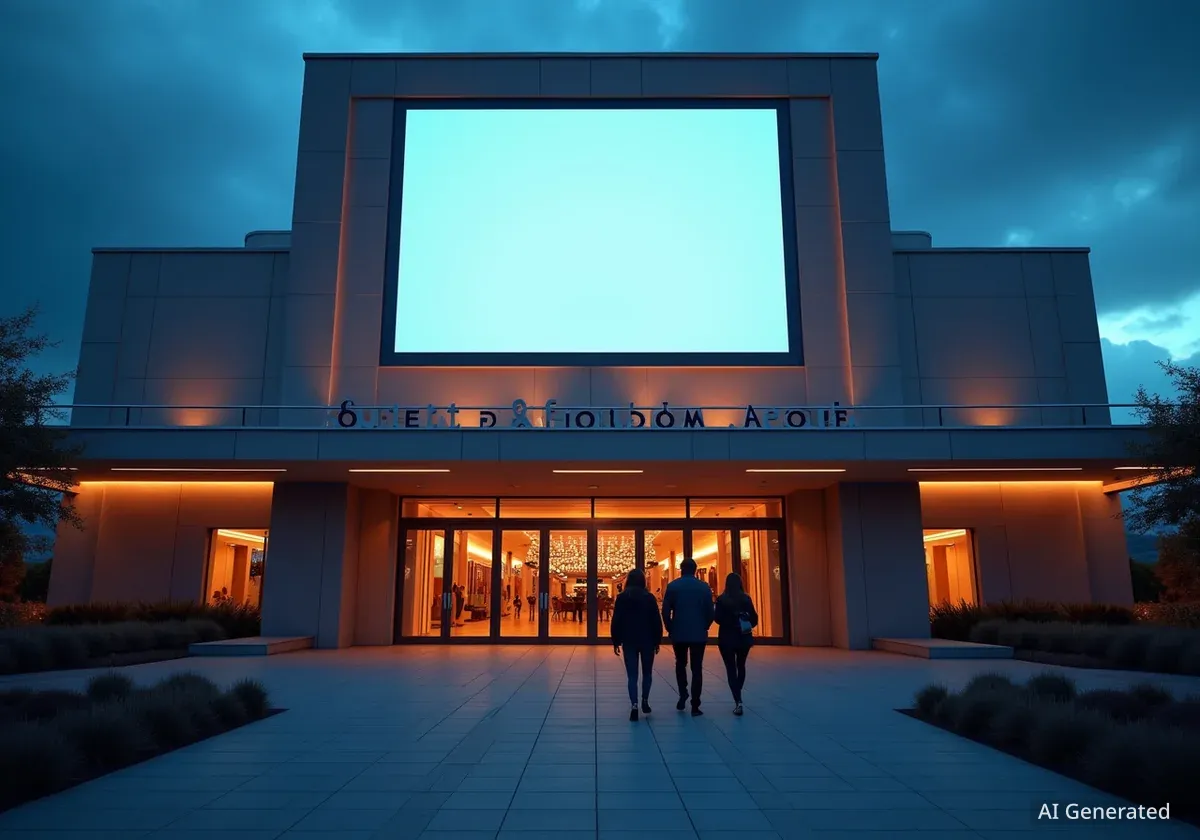Five years ago, the members of the band Geese were high school students considering different paths. Today, with the release of their album Getting Killed and frontman Cameron Winter's solo debut Heavy Metal, the New York-based group is quickly becoming a significant force in contemporary rock music. This article explores their journey from Brooklyn basements to critical acclaim and their unique approach to music creation.
Key Takeaways
- Geese, a New York rock band, has achieved significant recognition in five years.
- Frontman Cameron Winter released a critically acclaimed solo album, Heavy Metal, in December.
- Their new band album, Getting Killed, is described as an exhilarating rock record.
- The band's members, all in their early 20s, emphasize raw emotion and artistic freedom in their work.
- They navigated challenges from label feedback and touring difficulties to personal transitions.
The Unconventional Start of Geese
The band Geese, comprising Cameron Winter (vocals), Max Bassin (drums), Emily Green (guitar), and Dom DiGesu (bass), formed in high school. Their early experiences included attending the Park Slope Rock School in Brooklyn, where they learned to write original material. Winter, Green, and Bassin, whose parents were also involved in music, often found ways to be grouped together in various school bands.
Frustration with the quality of their early recordings led Winter and Bassin to build a studio in Bassin's basement at age 14. Green joined them, and later DiGesu, whom Green met in high school, completed the lineup. The band's name, Geese, originated from Green's nickname, Goose.
Band Origins
- Formation Age: Members formed Geese around 14 years old.
- First Studio: Built in Max Bassin's basement using his late father's recording gear.
- Early Music School: Park Slope Rock School, where they focused on original compositions.
From Basement Tapes to Record Deals
By age 16, Geese had recorded their first album, A Beautiful Memory, an ambitious 11-track project. Despite early skepticism from school peers regarding their long song intros, they continued to evolve. Winter, frustrated with the slow pace of democratic songwriting, began developing song ideas more independently, allowing for quicker progress.
Their second album, Projector, was darker and more experimental. They uploaded it to Soundcloud and actively sought label interest. In March 2020, Willie Upbin, an A&R scout for Atlantic Records, discovered their music. He was impressed and quickly connected them with attorneys and labels. This occurred during the height of the COVID-19 pandemic, a time when many plans were on hold.
"When they were like 'Sub Pop wants to offer you a record deal,' I screamed. I’ve never screamed in my life like that, before or since. My parents rushed into my bedroom, thinking I had hung myself or something."
Pandemic Impact
The COVID-19 pandemic unexpectedly altered the band members' college plans, providing an opportunity to pursue music full-time. This timing allowed them to capitalize on the sudden industry interest and sign their first major record deal.
Creative Expansion: Solo Work and New Albums
The band signed with Partisan Records, with a crucial stipulation: Winter could pursue solo projects. This foresight proved vital for his artistic development. In December, Winter released his solo album, Heavy Metal. Despite low commercial expectations from his label, it became an artistic and commercial success, praised by figures like Nick Cave.
The positive reception for Heavy Metal gave Winter confidence for Geese's next project. Their new album, Getting Killed, was recorded in January at Putnam Hill, a Los Angeles studio. The album is a 46-minute collection of intense and experimental rock, drawing comparisons to bands like Radiohead and Swans. Winter's prolific output includes four albums started or finished in the last year, with thousands of unused songs reportedly stored in Dropbox folders.
Working with Producer Kenny Blume
The band collaborated with producer Kenny Blume (formerly Kenny Beats) for Getting Killed. Blume, known for his work in hip-hop, was drawn to Geese's unique sound after hearing their album 3D Country. He approached them at Austin City Limits, expressing a strong desire to work together.
Their initial recording sessions in November did not go as planned. Blume found Geese's new material challenging to structure. However, after hearing Winter's solo album, Heavy Metal, Blume understood Winter's evolving songwriting style. This breakthrough allowed them to connect creatively.
Production Insights
- Producer: Kenny Blume (formerly Kenny Beats).
- Studio: Putnam Hill in Los Angeles.
- Recording Process: Involved long, intensive days, often 14 hours, to capture the band's complex sound.
The recording of Getting Killed was demanding. They worked 14-hour days, often without lunch breaks. Winter's approach to songwriting, which involves a process of "frustration, frustration, frustration" until the song reveals itself, initially worried Blume. However, Winter's patience and Blume's commitment led to a strong creative partnership.
"He has a lot more patience than I did. All I want to do is get to the next thing as fast as possible. I scarcely ever did two takes of anything in my entire life, until Kenny."
The Challenges of Touring and Evolution
Geese's journey was not without difficulties. After signing their deal, they essentially reversed the typical indie rock path, securing a label before extensive live performance experience. Their first tours, including back-to-back shows across the U.S. and Europe, were challenging. Winter described them as "one of the worst experiences of his life," marked by both sold-out shows and "ghost shows" with small audiences.
The band also faced creative differences with their label regarding their second album, 3D Country. Partisan Records provided numerous notes on potential changes, which Winter initially resisted. This period of tension and touring difficulties led to the departure of their second guitarist, Foster Hudson, who chose to pursue college.
Personal Growth and Artistic Integrity
Despite these hurdles, the band members continued to evolve both personally and artistically. Emily Green's journey of self-discovery, realizing her identity as a woman, became a significant aspect of her growth. She found confidence on stage, seeing it as a space for authentic self-expression. Producer Kenny Blume played a supportive role, helping her overcome self-doubt in her guitar playing.
Band Member Insights
- Emily Green: Guitarist, found confidence in her identity as a woman during touring.
- Max Bassin: Drummer, known for his rhythmic foundation.
- Dom DiGesu: Bassist, joined after meeting Emily Green in high school.
Winter's commitment to artistic integrity was evident throughout the production of Heavy Metal. He resisted label pressure to alter songs, believing in his vision despite initial negative feedback. This dedication ultimately paid off with the album's critical success.
"I could cry thinking about how much I respect every single one of my friends. Like Cameron having his outlet and doing it against whatever everyone else was saying? And Emily, coming out to us and showing us herself."
The Future of Geese
The album Getting Killed showcases a refined and impactful sound. Tracks like "Half Real" and "Trinidad" highlight the band's ability to blend intense musicality with deeply personal lyrics. Winter's vocal delivery on this album is noted for its raw honesty, reflecting a deeper engagement with his own words.
The band's rapid evolution has impressed industry observers. Tim Putnam, co-founder of Partisan Records, noted the significant growth between 3D Country, Heavy Metal, and Getting Killed. He suggested that the reception of Heavy Metal directly influenced the artistic direction and vocal evolution on Getting Killed, widening Geese's audience.
A Young Band's Trajectory
The members of Geese are all in their early 20s, having chosen to delay college for their music careers. Their journey reflects a unique path where artistic development and personal growth occur simultaneously in the public eye. This approach has allowed them to continuously push their creative boundaries.
Winter's drive for constant creation remains strong. He maintains a vast backlog of unreleased music and strives for continuous improvement. His philosophy emphasizes genuine excitement for music-making over complacency.
Geese's journey, from high school friends to a band receiving significant critical attention, highlights their commitment to their artistic vision. They continue to navigate the complexities of the music industry while staying true to their unique sound and personal growth. Their story is one of rapid ascent, marked by challenges, collaboration, and unwavering dedication to their craft.





